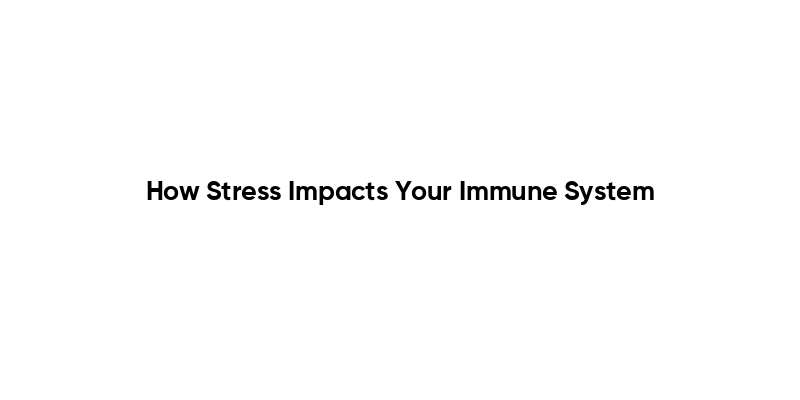Steroids and heart health are critical topics that demand attention, especially in light of the recent news surrounding wrestling icon Hulk Hogan’s unexpected death. At 71, Hogan, famously known for his larger-than-life persona, succumbed to cardiac arrest, raising concerns about the possible consequences of steroid abuse. The connection between steroid use and heart health has become a hot topic in medical discussions, particularly regarding the effects of steroids on heart function and overall wellbeing. Many professional athletes, including wrestlers, have faced stark realities as they grapple with the steroid abuse effects on their bodies, often leading to severe cardiac complications. As we explore Hogan’s life and the broader implications of steroid use in wrestling, it becomes essential to understand how such drugs impact cardiac health and contribute to tragic outcomes like cardiac arrest.
When discussing the implications of anabolic substances on cardiovascular wellness, it is crucial to address the overarching issue of how steroid consumption impacts heart vitality. The situation highlights the urgent need to understand the long-term repercussions of performance-enhancing drugs, which have been a controversial staple in many sports, including professional wrestling. As we delve deeper into this topic, we will examine the potential cardiac risks, including the causes of cardiac arrest that can result from prolonged steroid administration. The legacy of athletes like Hulk Hogan serves as a potent reminder of the dangers tied to substance misuse within competitive environments, emphasizing the need for vigilance against steroid-related health risks. By analyzing this phenomenon, we can promote awareness and encourage healthier practices in sports and beyond.
Understanding the Link Between Steroids and Cardiac Health
Steroids are often associated with muscle growth, particularly in the world of wrestling. However, the effects of steroids on heart health can be severe and long-lasting. Many wrestlers have used anabolic steroids to enhance their performance, not realizing the potential consequences on their cardiovascular system. Research has shown that steroid use can lead to changes in heart function, increasing the risk of heart disease, and potentially leading to cardiac arrest. In the wake of the tragic news regarding Hulk Hogan, it’s crucial to examine how prolonged steroid use might have impacted his heart health over the years.
The correlation between steroid abuse effects and heart conditions is not merely speculative but supported by clinical evidence. Studies indicate that individuals who abuse steroids may experience hypertension, an increase in LDL cholesterol levels, and even hypertrophic cardiomyopathy, a condition where the heart muscles thicken, impairing its ability to pump blood effectively. As we reflect upon the life and career of a wrestling icon like Hulk Hogan, we must consider how such drug use might contribute to sudden health crises, including cardiac arrest.
The Impact of Steroid Abuse in Professional Wrestling
Steroid use in wrestling has been a prominent issue, especially during the 1980s and 1990s when the sport gained massive popularity. Wrestlers, including legends like Hulk Hogan, often participated in a culture that encouraged enhancing physical appearance and performance through drug use. This environment not only glorified steroid abuse but also concealed the severe health risks associated with it. Wrestlers facing pressure to maintain peak physical condition often ignored the potential repercussions, leading to devastating outcomes for their heart health.
As more wrestlers succumb to health issues potentially linked to steroid use, the wrestling community is being forced to confront the ugly truths behind the scenes. The tragic death of prominent figures in wrestling history raises awareness about the underlying issues of steroid abuse and its effects on health. Efforts are being made to educate young athletes about the dangers associated with steroids, aiming to prevent future tragedies caused by cardiac arrests and other steroid-induced health complications.
Steroid-Related Health Risks: Unraveling the Consequences
The adverse effects of steroids extend beyond physical stamina and muscle gain; they significantly impact cardiovascular health. Individuals who engage in steroid abuse can expect a range of side effects, including increased risks of heart attacks and strokes. The earlier athletes like Hogan started using steroids, the more likely they were to develop severe heart complications later in life. The awareness of these risks has become more prevalent in discussions about athlete health, particularly as high-profile cases emerge — highlighting the critical need for intervention and education.
Moreover, the psychological dependence on steroids complicates matters, leading many athletes to continue usage despite knowing the dangers involved. This dependency poses a unique challenge for healthcare providers tasked with supporting these individuals in overcoming their addiction. As evidenced by occurrences in professional wrestling, the pressure to maintain an unrealistic body image can drive athletes to push their bodies beyond safe limits, resulting in dire cardiovascular repercussions and premature deaths due to cardiac arrest.
The Fallout of Historic Steroid Use in Wrestling
Reflecting on the careers of legends such as Hulk Hogan inevitably brings the conversation around steroid use to the forefront. Many wrestling fans are now questioning the long-term implications of years of physical performance enhancers on their heroes. The risks associated with such substances are well-documented, yet the allure of fame and the desire for physical prowess potentially blinded many to the looming dangers. The wrestling fraternity must face the fallout of these decisions, as many athletes are now paying for their past choices with their health.
The wrestling industry has, in recent years, started to implement stricter drug policies, aiming to protect athletes from the harmful effects of steroids. However, the challenge remains: how to instill a culture that prioritizes health and well-being over the outdated glorification of steroid-infused physicality? The legacy of steroid abuse must be confronted head-on to prevent further tragedies in a sport that has already suffered greatly from such choices.
Steroid Use and Its Tangible Effects on Heart Health
The tangible effects of steroids on heart health cannot be understated; this insight is crucial, especially in light of recent tragedies involving prominent athletes. Long-term steroid use can lead to a variety of cardiac issues including arrhythmia, coronary artery disease, and cardiomyopathy. These conditions result in a heart that struggles to function properly, making the individual susceptible to acute events like cardiac arrest. As fans reflect on the loss of figures like Hulk Hogan, it’s important to understand that these are not isolated incidents, but rather part of a broader tapestry of health issues stemming from steroid use.
Moreover, tackling the stigma around these topics is essential. Open conversations about the realities of steroid-related heart diseases must be welcomed in the sports community. Recognition of the physiological changes that steroid use can cause — such as myocardial thickening and altered cholesterol levels — can facilitate earlier intervention and promote healthier lifestyle choices among aspiring athletes. It is imperative to advocate for a future where sportsmanship does not equate to sacrificing one’s health.
The Dark Legacy of Steroids in Wrestling History
Steroid use has left a dark legacy in the history of professional wrestling, especially regarding the health of its athletes. Decades of a ‘bigger is better’ mentality have contributed to a culture where short-term gains overshadow long-term health. The tragic death of wrestling icons highlights the urgent need for transparency regarding the health risks associated with steroid use. By shining a light on these issues, we can better understand the consequences of a past riddled with substance abuse.
It’s crucial to analyze this dark legacy through the lens of prevention and change. Understanding the psychological pressures athletes face to meet certain physical standards can help in developing comprehensive programs aimed at reducing steroid abuse. Educational initiatives focusing on the long-term effects of steroids on heart health can pave the way for a new generation of clean athletes who prioritize their well-being over the fleeting allure of fame.
The Role of Education in Combating Steroid Abuse
Education plays a vital role in combating the detrimental effects of steroid abuse on heart health. Informing young athletes about the risks associated with anabolic steroids is a crucial step toward creating a healthier sports environment. Awareness programs, particularly in high schools and colleges, can help young athletes understand that shortcuts like steroids come with severe consequences, not only compromising their health but their career longevity as well.
Organizations within athletic communities need to prioritize health education, focusing on the scientific evidence surrounding the adverse effects of steroids. By presenting this information alongside success stories of athletes who chose natural methods for performance enhancement, we can inspire a shift in mindset. Proactive measures taken today will lead to healthier future generations, decreasing steroid abuse and its negative impact on heart health.
Reflections on Hulk Hogan and the Future of Wrestlers’ Health
Hulk Hogan’s story serves as a cautionary tale for both current and aspiring wrestlers. His legacy, intertwined with steroid use, raises poignant questions about the health of professional athletes. As we remember Hogan, we must also commit to advocating for safer practices within wrestling. The mantra of ‘work hard, play harder’ should evolve into one that emphasizes health, safety, and well-being, transforming the narrative surrounding performance enhancement.
Future wrestlers must be educated on the risks associated with steroids and encouraged to pursue natural avenues for improvement. It’s vital for both the wrestling industry and its fans to honor legends like Hogan, not just through remembrance of their achievements, but by ensuring that the next generation does not suffer the same fate. As the wrestling landscape shifts, prioritizing heart health and promoting drug-free competition should become the status quo.
Steroids and Their Lasting Effects: A Clarion Call for Change
Steroid abuse in wrestling necessitates a clarion call for change within the sport and its culture. Acknowledging the lasting effects of steroids on heart health is the first step toward reform. If we aspire to enhance the safety of our wrestlers, we must critically assess and transform the existing paradigms that allow for excessive steroid use. The wrestling community must engage in open discussions concerning the realities of steroid-related health consequences to foster a safer environment.
Through collective action, the wrestling industry, health professionals, and fans can work together to promote healthier practices. Establishing comprehensive health guidelines that prioritize the physical and mental well-being of athletes is essential. Reinforcing the understanding that a wrestler’s true strength comes from skill and endurance, rather than chemical enhancement, will not only honor those we’ve lost but also pave the way for a healthier future in the wrestling world.
Frequently Asked Questions
What are the effects of steroids on heart health?
Steroid use can lead to significant negative impacts on heart health, including increased risk of high blood pressure, enlarged heart (cardiomyopathy), and a higher likelihood of heart attacks. Steroids can disrupt normal cholesterol levels by raising LDL (bad cholesterol) and lowering HDL (good cholesterol), contributing to atherosclerosis and other cardiovascular complications.
How does steroid abuse affect the heart?
Steroid abuse is linked to a range of adverse cardiovascular effects. Chronic use can lead to conditions such as arrhythmias, thickening of the heart walls, and even heart failure. Additionally, long-term steroid users may have an increased risk of experiencing sudden cardiac events like cardiac arrest.
Could Hulk Hogan’s death be related to steroid use in wrestling?
While the exact causes of Hulk Hogan’s death from cardiac arrest are not definitively linked to steroid use, the long-standing connection between steroid use in wrestling and heart health complications raises concerns. Many wrestlers have encountered serious health issues attributed to steroid abuse over their careers, emphasizing the potential risks associated with such substances.
What are the cardiac arrest causes related to steroid abuse?
Cardiac arrest in individuals who abuse steroids can result from various factors, including the strain that steroids put on the heart. This can lead to hypertension, changes in heart structure, and electrolyte imbalances, all of which can precipitate a cardiac arrest.
Is there a connection between steroid use in wrestling and heart disease?
Yes, there is a notable connection between steroid use in wrestling and heart disease. Many wrestlers have reported heart ailments, and studies suggest that the heavy steroid use prevalent in the sport contributes to an increased incidence of heart disease, including heart attack and stroke.
What are the signs of steroid abuse effects on the heart?
Signs of steroid abuse effects on the heart can include extreme fatigue, chest pains, palpitations, and unexplained shortness of breath. Individuals may also exhibit high blood pressure and changes in mood or behavior, indicating potential cardiovascular issues.
| Key Point | Details |
|---|---|
| Hulk Hogan’s Death | Reportedly due to cardiac arrest, raising questions about health impacts of steroids. |
| Link Between Steroids and Heart Health | Long-term steroid use can lead to serious heart problems, including arrhythmias and increased risk of heart attacks. |
| Public Image | Hogan’s persona and career were built on a hyper-masculine image often associated with steroid use in wrestling. |
| His Legacy | While celebrated for his contributions to wrestling, questions about the impact of steroids on his health linger. |
Summary
Steroids and heart health are critical issues that have gained renewed attention following the shocking death of Hulk Hogan from cardiac arrest. Recent discussions reveal that prolonged steroid use can lead to severe cardiovascular conditions, including heart attacks and arrhythmias. As more high-profile cases emerge, it is essential for athletes and the public to understand the potential heart risks associated with steroid abuse. The legacy of athletes like Hogan serves as a reminder of the hidden dangers that often come with the pursuit of peak physical performance.



